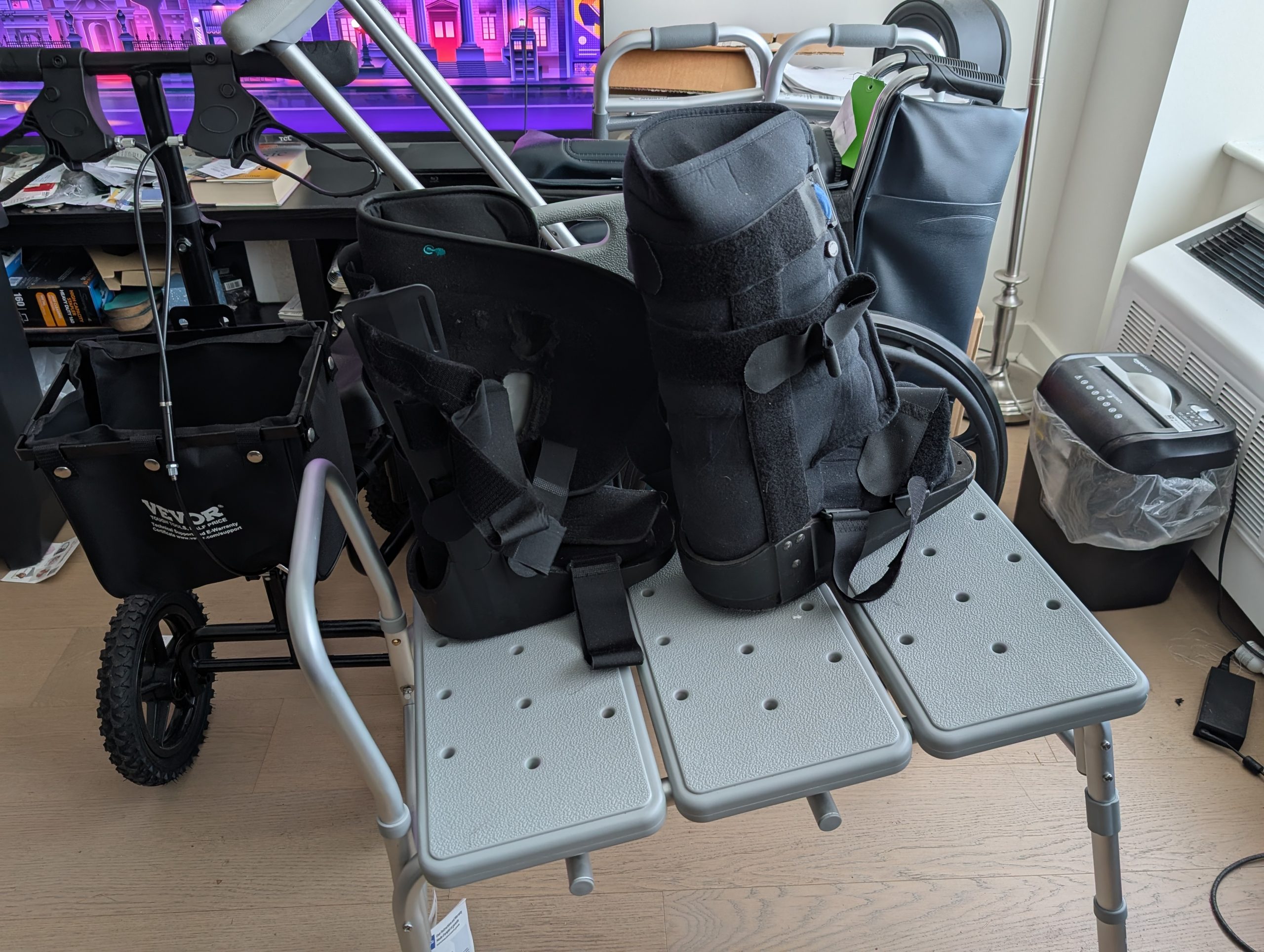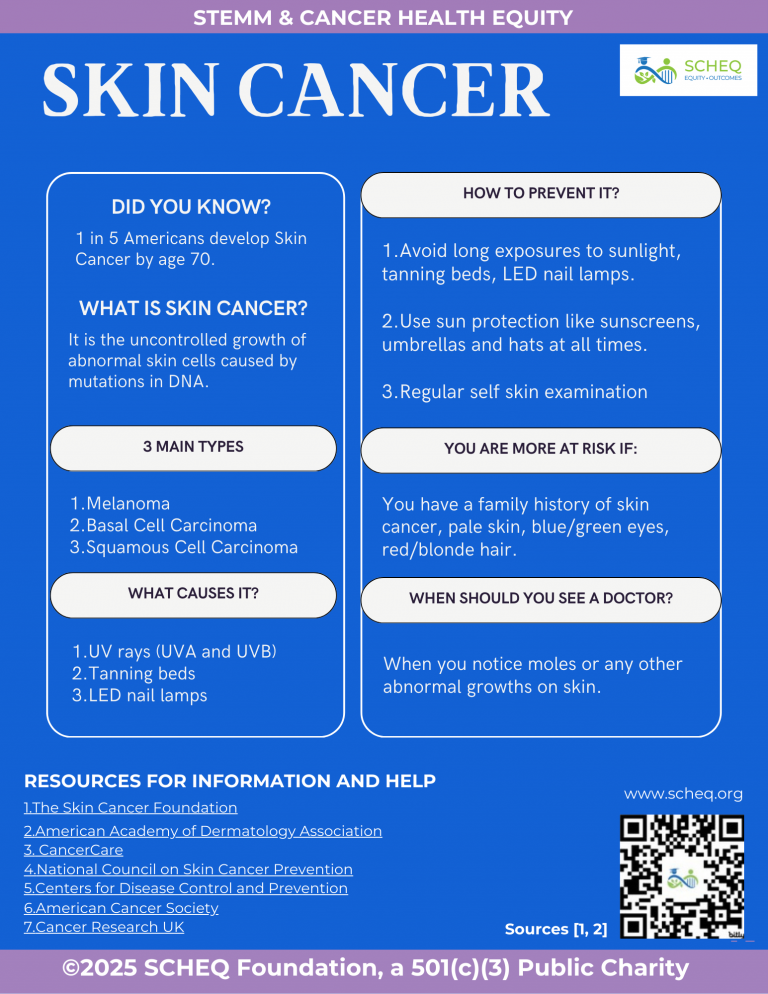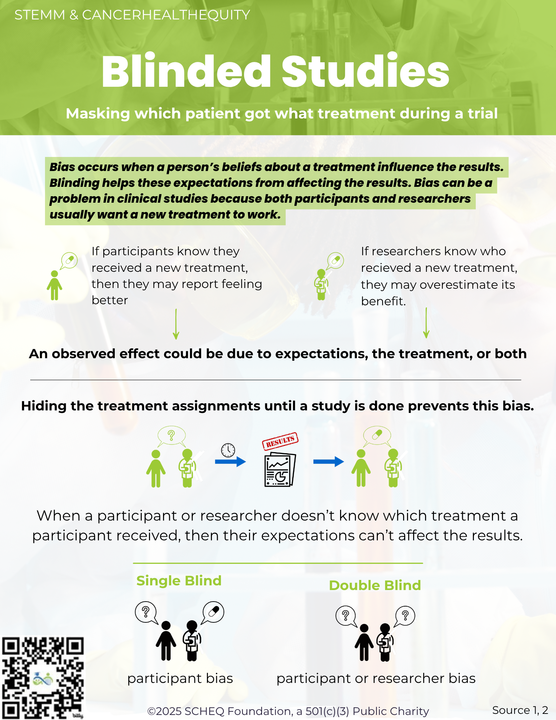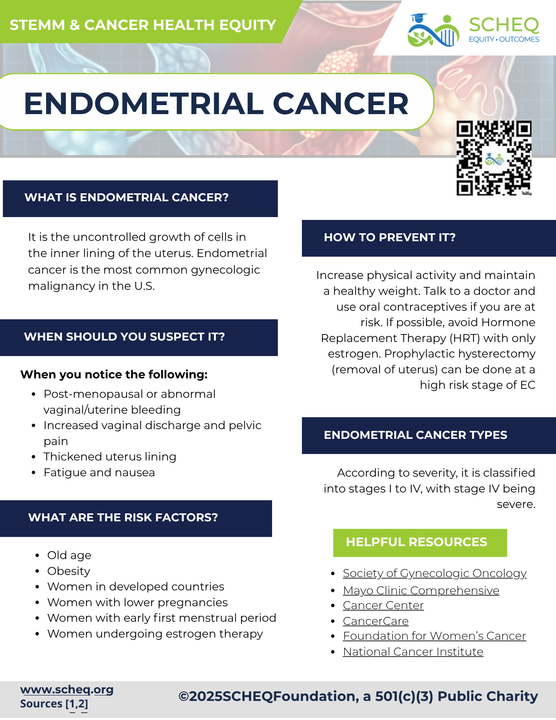By Dr. Eugene Manley, Jr.
Founder & CEO SCHEQ Foundation
My Experience: When Protocols Are Ignored
Medical bias becomes medical racism when assumptions based on race, income, education, disability, or insurance status directly impact care. I recently experienced this firsthand at Mount Sinai Queens following complex reconstructive foot surgery on my right foot subsequent to a slip and fall fracture. Despite thorough pre-surgery planning with my surgeon, including a request for skilled nursing care due to living alone and mobility limitations, my recovery was derailed by hospital staff disregarding our agreed plan.
My surgery was scheduled for a Thursday afternoon, and went longer than anticipated. Within 35 hours post-op on Saturday morning, a physical therapist forced me (300+ lbs, fresh out of surgery, and on narcotics) onto a walker. It was virtually impossible to hop on the left leg, which already has an ACL reconstruction, and dangle the right, which meant blood was racing to that foot every single hop. This violated my non-weight-bearing orders and put my healing at risk. The occupational therapist echoed false notes, stating I could ambulate. That evening, a nurse had given me discharge paperwork with no prior contact or follow up from a case worker or social worker. The paperwork was filled out incorrectly, included an earlier time, and did not indicate which of the three numbers I was to contact. It felt like a concerted effort to remove me from the hospital regardless of my condition.
By Monday, I was still in pain, unsupported, and emotionally overwhelmed. When asked about my ability to pay for skilled nursing, I broke down in tears. That detail, not my medical needs, was what was documented.
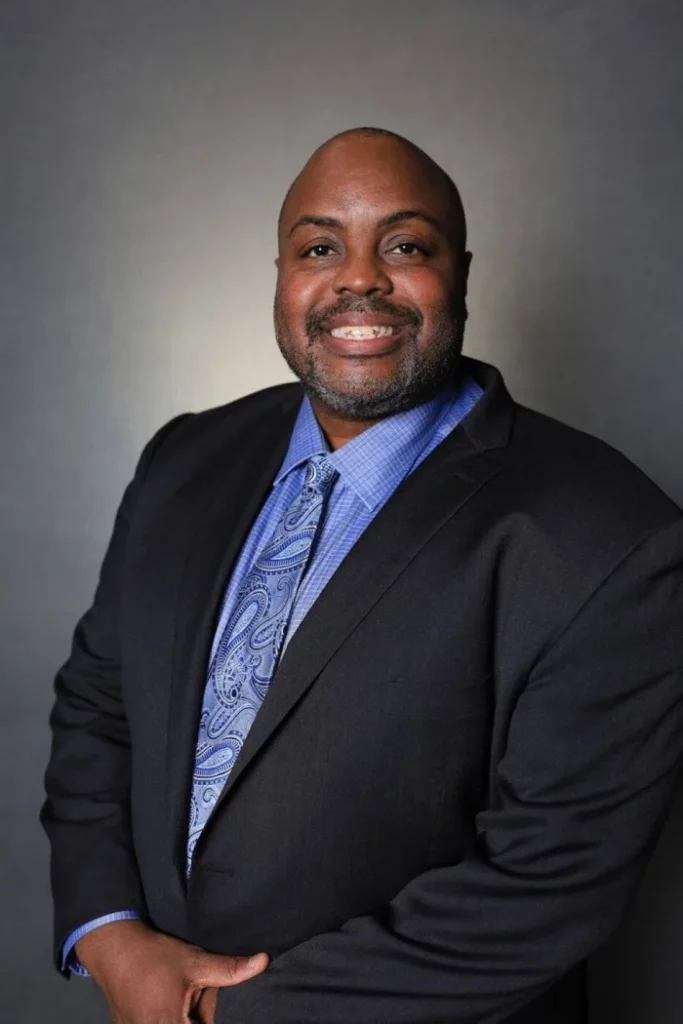
Charting Over Care
On Tuesday, staff repeatedly bumped into my surgical foot. I raised my voice once out of pain and frustration – and overheard a nurse label me “aggressive” on my chart. My liver enzymes spiked, my medication wasn’t working, and I wasn’t stable enough to go home. Yet the hospital pushed for discharge by Friday.
The surgeon, trying to advocating for me while not being allowed to access the records, discovered that physical therapy had falsely reported I had no pain and could walk, effectively denying me skilled nursing care. It took five days for PT to answer him, and only after he complained higher up. Insurance wanted to know why it took so long, but it is hard to address that when the staff don’t reply. Despite multiple appeals and peer-to-peer reviews, insurance couldn’t override these inaccurate records. I was discharged alone at midnight on Friday with no caregiver, no equipment except a last-minute scooter, and incomplete prescriptions.
I fell the next day while trying to get medication. I was sobbing on the sidewalk just 50 feet from my building.
Post-Hospital Struggles
Once home, I faced more barriers. Insurance delays meant I went 17 days without a home aide. Services that were approved were underdelivered due to miscommunication and disorganization with the visiting nursing agency. I had to coordinate my own care, call pharmacies, beg friends to help, and advocate for myself while recovering from major surgery.
Meanwhile, my medical records contradicted reality: they claimed I had a caregiver, no discharge barriers, no pain, and could “walk” to get groceries and prescriptions. Patient advocacy never returned my calls.
This cascade of failure—rooted in bias and systemic neglect—caused both physical harm and emotional trauma. The lack of accountability and empathy reveals a deeper issue: medical racism is often subtle, but deeply embedded. Sometimes it is very overt and in your face.
Seeking Accountability
I took action:
- I sent certified letters that required signature to hospital leadership and patient advocacy..
Filed complaints with the NY State Department of Health, the Attorney General, and the Office of Professional Discipline, and the Joint Commission on Hospital Accreditation. - Contacted my state senator, Anthem Blue Cross, and began the process of correcting my medical records.
- Reached out to 10 lawyers, most of which didn’t respond.
Mount Sinai’s response? Dismissive. Letters addressed me as “Mr.” despite my doctoral credentials. The Chief Medical Officer claimed nothing was wrong and that it was communication issues. They made sure to highligh that they “gave me a scooter,” as if that excused the rest. They offered no apology and ignored my core concerns. Patient Advocacy only returned my calls after they received the letter.
What Patients Need to Know
If you are Black, Brown, disabled, elderly, on Medicaid, or from an underserved background, know this:
You have the right to:
- Access, read, and amend your medical records (after your concerns are addressed)
- Have a medical proxy with you at the hospital that can read your medical records in real time. It is critical that you have one with you so that you do not have to suffer.
- Refuse unsafe discharge
- Be heard and included in care planning
- File formal complaints when mistreated
- Document everything
- Know it is not your fault and that you have done nothing wrong
And you can take action:
- Send certified letters to hospital leadership
- Report misconduct to your state’s health departments and Medicaid
- File reports with the Joint Commission, if the hospital is accredited
- Report misconduct to the bodies governing Physical and Occupational Therapists, and any other provider
- Notify insurance of possible insurance or medicaid fraud
- Contact your elected officials
- Share your story through media and advocacy groups
- Seek legal remedies
Why This Matters
This isn’t just my story, it’s the story of many. When systems ignore Black patients, when Medicaid recipients are treated as burdens, when care is driven by insurance codes instead of compassion, we suffer. This erodes trust, makes patients fearful of healthcare settings, leads to worse outcomes, and deters research participation. Why would a person want to go do a trial at an institution when they were treated like they were irrelevant when they were in a hospital bed?
If this happened to me at the hospital, who knows how to advocate and has seen this happen to my family, what has happened many of the other underserved patients that do not have the same knowledge that I possess? The story of Black individuals being ignored or mistreated in healthcare is not new. Some examples include Venus Williams with fibroids, Serena Williams during childbirth, and the Mississippi Appendectomy. It’s a painful reminder that no matter your fame, income, education, or status, it can happen to anyone.
At SCHEQ, we work to increase health literacy and empower patients. But this experience exposed how broken the system truly is.
We Must Demand Better
- Accountability for falsified medical records
- Mandatory bias and ethics training
- Consistent enforcement of patient rights
Until every patient is treated with dignity and care, we must continue to speak out.
Join Us.
If you’ve faced something similar, you’re not alone. Share your story and demand the care you deserve.
Email us: info@scheq.org
Dr. Eugene Manley, Jr. is the Founder and CEO of SCHEQ (STEMM & Cancer Health Equity) Foundation, a national nonprofit improving health outcomes for underserved patients and diversifying the STEMM workforce. He serves on local, national, and international advisory boards related to lung cancer, stigma, patient advocacy, and community engagement. He speaks about lung cancer disparities, health equity, navigating STEMM careers, and leadership.

